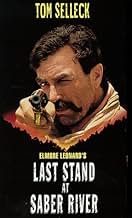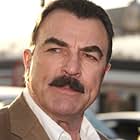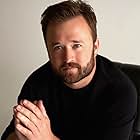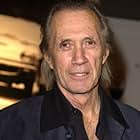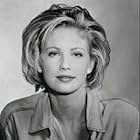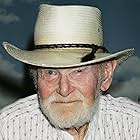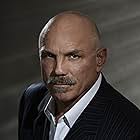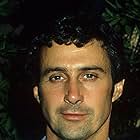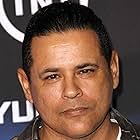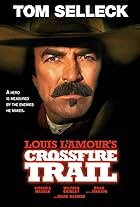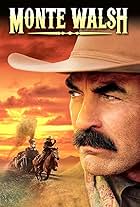After the Civil War, a returning Confederate veteran must reclaim his Arizona land and homestead from the Yankee carpetbaggers who illegally occupy it.After the Civil War, a returning Confederate veteran must reclaim his Arizona land and homestead from the Yankee carpetbaggers who illegally occupy it.After the Civil War, a returning Confederate veteran must reclaim his Arizona land and homestead from the Yankee carpetbaggers who illegally occupy it.
- Awards
- 2 wins
Eugene Osment
- Wynn Dodd
- (as Michael Osment)
- Director
- Writers
- All cast & crew
- Production, box office & more at IMDbPro
Storyline
Did you know
- TriviaThis was Harry Carey Jr.'s final acting role before his death on December 27, 2012 at the age of 91.
- GoofsPaul Cable uses a Richards conversion of the Colt 1860 Army revolver, and is shown shooting and reloading the revolver with cartridges. The story is set in 1865 at the close of the US Civil War, but the Richards conversion was not introduced until 1873. However, while factory made cartridge conversions may not have been readily available until this time, the movie takes efforts to address this by having Paul Cable's wife and father-in-law working on cartridge converted pistols in their workshop. This occurs early in the movie, with Cable's wife telling a young cowboy about the modifications that had been made to his Colt percussion revolver, which includes a cartridge converted cylinder and ejector rod. An allusion is also made to the fact that Cable's wife had done similar work on Cable's own revolver.
- Quotes
Martha Cable: The disadvantage of knowing a man all his life is a woman never expects him to change.
Martha Cable: And when he does, it rattles her.
Featured review
Although made for television, this is an excellent western; far better than the usual fair one finds on the tube. I bought the DVD after watching Selleck in Crossfire Trail, The Sacketts, and The Shadow Riders . No doubt about it: Tom Selleck makes a Hell of a cowboy! The plot has been described in previous reviews so there is little point in repeating what has already been said.
The actors are uniformly fine especially Suzy Amis, Keith and David Carradine, and Tracey Needham. Haley Joel Osmet was also fine in a relatively minor (but important part)and Rachel Duncan was marvelous as Cable's daughter Clare (watching her ride side by side with Selleck on a horse drive mimicking his actions is great fun). I have to also mention western character actor extraordinaire' Harry Carey, Jr., who was fine as Cable's father-in-law in an all too brief roll at the beginning of the movie Carey was once a member of John Ford's stock company with John Wayne, Ward Bond, and many other western genre greats.
In a sense this is an anti-war movie as it certainly does not glorify the Civil War (or the War for the Southern Confederacy). Indeed, it rather accurately portrays Bedford Forest's roll at Fort Pillow, Tennessee but Forest was the only Confederate leader to murder black Union Troops. This atrocity was committed during the battle of Petersburg (if my memory serves me correctly at a fight called "The Crater"). The confederate gun runner offered a accurate statement when he said that war changes men and that it makes those who survive killers. Afterall war is simply murder wrapped in a flag. Sam Elliott said much the same thing as Sheriff Bucky O'Neil in the movie Rough Riders. I thought Selleck's portrayal as Cable and Keith Carradine as Vern Kidston were right on target. Calling Vern a bad guy is hardly accurate and frankly, this is a movie with no quintessential bad guys with the possible exception of David Dukes as Edward Janroe. Janroe, an ardent Confederate nationalist, however is far more of a tragic figure having lost the use of his right arm in the war and remaining extremely bitter as a result. Janroe said he fought in Virginia with Kirby Smith. Although Smith is better known for his leadership in the Transmississippian Department after 1863, he did in fact fight in Virginia during 1861. Smith was the last Confederate general to surrender in May 1865. The ending of the war in favor of the north seems to have caused Janroe to lose his senses...a tragic (bot hardly sympathetic) figure indeed.
In sum, this movie has enough action to keep it exciting but it is honestly a human interest movie about how war effects those who participate in it and those left behind. It never drags and the 96 minute duration passes by all too quickly.
The actors are uniformly fine especially Suzy Amis, Keith and David Carradine, and Tracey Needham. Haley Joel Osmet was also fine in a relatively minor (but important part)and Rachel Duncan was marvelous as Cable's daughter Clare (watching her ride side by side with Selleck on a horse drive mimicking his actions is great fun). I have to also mention western character actor extraordinaire' Harry Carey, Jr., who was fine as Cable's father-in-law in an all too brief roll at the beginning of the movie Carey was once a member of John Ford's stock company with John Wayne, Ward Bond, and many other western genre greats.
In a sense this is an anti-war movie as it certainly does not glorify the Civil War (or the War for the Southern Confederacy). Indeed, it rather accurately portrays Bedford Forest's roll at Fort Pillow, Tennessee but Forest was the only Confederate leader to murder black Union Troops. This atrocity was committed during the battle of Petersburg (if my memory serves me correctly at a fight called "The Crater"). The confederate gun runner offered a accurate statement when he said that war changes men and that it makes those who survive killers. Afterall war is simply murder wrapped in a flag. Sam Elliott said much the same thing as Sheriff Bucky O'Neil in the movie Rough Riders. I thought Selleck's portrayal as Cable and Keith Carradine as Vern Kidston were right on target. Calling Vern a bad guy is hardly accurate and frankly, this is a movie with no quintessential bad guys with the possible exception of David Dukes as Edward Janroe. Janroe, an ardent Confederate nationalist, however is far more of a tragic figure having lost the use of his right arm in the war and remaining extremely bitter as a result. Janroe said he fought in Virginia with Kirby Smith. Although Smith is better known for his leadership in the Transmississippian Department after 1863, he did in fact fight in Virginia during 1861. Smith was the last Confederate general to surrender in May 1865. The ending of the war in favor of the north seems to have caused Janroe to lose his senses...a tragic (bot hardly sympathetic) figure indeed.
In sum, this movie has enough action to keep it exciting but it is honestly a human interest movie about how war effects those who participate in it and those left behind. It never drags and the 96 minute duration passes by all too quickly.
Details
- Release date
- Country of origin
- Official site
- Language
- Also known as
- Después de una guerra
- Filming locations
- Production companies
- See more company credits at IMDbPro
- Runtime1 hour 36 minutes
- Color
- Aspect ratio
- 1.33 : 1
Contribute to this page
Suggest an edit or add missing content

Top Gap
By what name was Last Stand at Saber River (1997) officially released in India in English?
Answer


